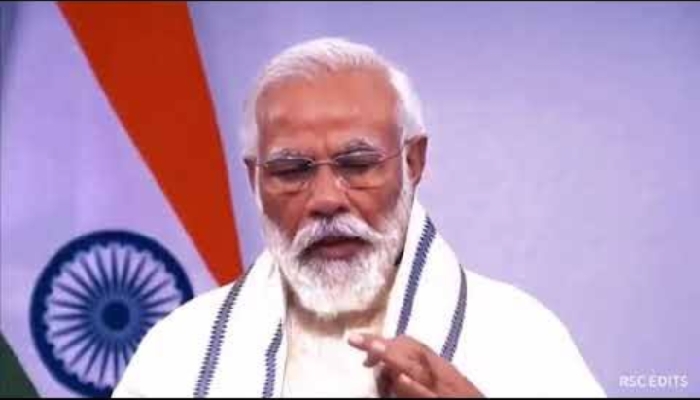Kolkata, May 20: Cyclone 'Amphan' lay centred about 240 km south of Digha in West Bengal on Wednesday morning as an extremely severe cyclonic storm, the Met department said here.
The intensity near the centre of the storm was 170 to 180 kmph gusting to 200 kmph, the Met said.
'Amphan' is very likely to move north-northeastwards and cross West Bengal-Bangladesh coast between Digha and Hatiya, close to the Sunderbans during the afternoon to evening of Wednesday with a wind speed of 155 to 165 kmph gusting to 185 kmph as a 'very severe cyclonic storm', the Met department said.
West Bengal has evacuated more than three lakh people to safer places as the cyclonic storm 'Amphan' roared towards the coastal areas of the state, officials said.
The Met department, which has issued an "orange message" for West Bengal, warned of extensive damage in Kolkata, Hooghly, Howrah, South and North 24 Parganas and East Midnapore districts.
The Met department has advised that all establishments and markets remain closed in Kolkata and adjoining areas and movement of people be restricted on May 20.
There is likely to be disruption of rail and road link at several places, uprooting of communication and power poles, extensive damage to all types of 'kutcha' houses and some damage to "old badly managed pucca" structures and potential threat from flying objects, the weatherman warned.
There is also likelihood of extensive damage to standing crops, plantations and orchards and blowing down of palm and coconut trees, the Met said.
The weatherman has advised diversion or suspension of rail and road traffic in the districts which are likely to be affected.
The Eastern Railway (ER) has cancelled the departure of Howrah-New Delhi AC Special Express for Wednesday.
The departure of 02301 Howrah-New Delhi AC Special Express on Wednesday and 02302 New Delhi-Howrah AC Special Express on May 21 would remain cancelled, the ER said.
Wind speed along and off the coastal areas of West Bengal will reach 75 to 85 kmph with gusts up to 95 kmph from Wednesday morning along and off districts of North and South 24 Parganas, East and West Midnapore, Kolkata, Howrah and Hooghly, Regional Met director G K Das said.
"It will gradually increase thereafter becoming 110 to 120 kmph gusting to 130 kmph over West Midnapore, Howrah, Hooghly, Kolkata and wind speed of 155 to 165 kmph gusting to 185 kmph over the districts of North and South 24 Parganas and East Midnapore of West Bengal from the afternoon to night of May 20," he said.
Under its impact rainfall will occur in most places over the districts of Gangetic West Bengal on Wednesday, with heavy to very heavy downpour with extremely heavy rain at a few places in Kolkata, Howrah, East Midnapore, North and South 24 Parganas and Hooghly districts, he said.
"Storm surge of 4 to 5 metres above astronomical tide is likely to inundate low lying areas of South and North 24 Parganas and about 3 to 4 metres over low lying areas of East Midnapore district of West Bengal during the time of landfall," he said.
The Indian Navy has dispatched a diving team for providing assistance to the West Bengal government in relief operations, a Defence official said.
The diving team from Vishakhapatnam has brought specialised equipment along with them which can be used for rescue in case of flooding and have been positioned at the Naval Service Selection Board at Diamond Harbour in South 24 Parganas district, the official said.







Comments
Add new comment